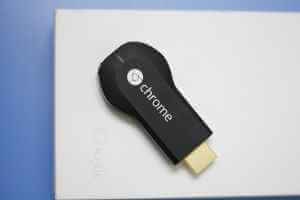You all know that it's normal for a laptop to produce heat. But when it produces more heat due to heavy loads, it affects performance and slows down the computer. Sometimes, overheating can cause permanent damage to components such as the graphics processing unit (GPU), central processing unit (CPU), memory modules, and other hardware. A PC has a safety mechanism called thermal throttling for Windows computers to protect it from this. Excessive heat , designed by Microsoft. If you're concerned about laptops experiencing thermal throttling, read this guide to testing and fixing laptop thermal throttling.
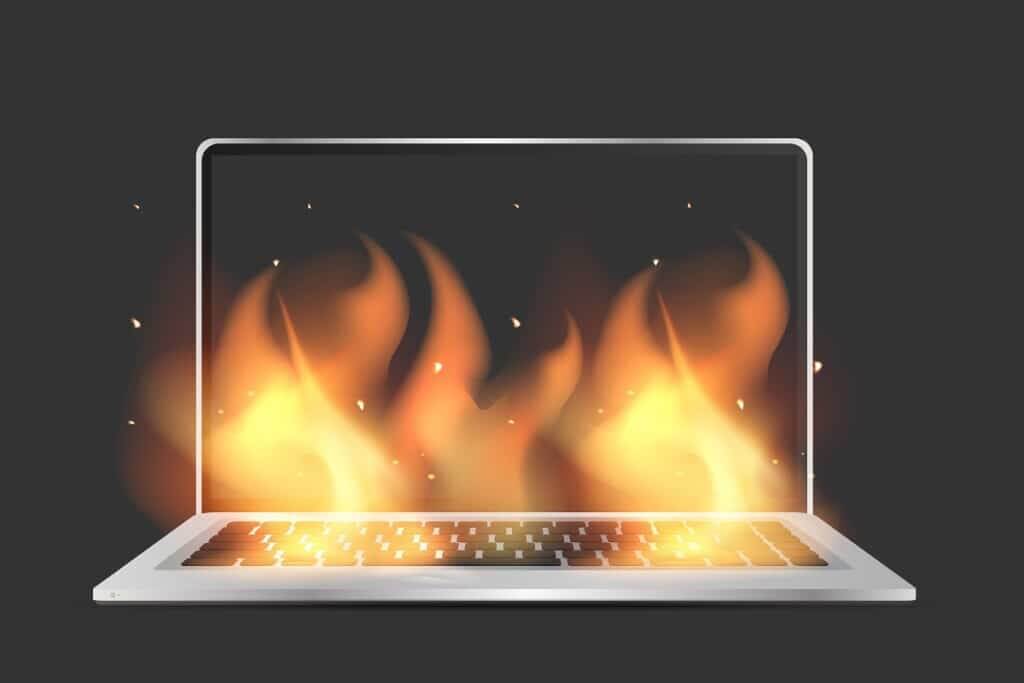
How to Fix Laptop Thermal Throttling
The temperature is CPU Around 80 degrees Celsius. When a Windows computer reaches this high temperature, its performance slows down to stop excess heat buildup and begins cooling.
- In general, it improves power usage by automatically adjusting the microprocessor speed and preventing internal heat and component damage.
- This is primarily due to the high temperature generated by the CPU or GPU, whenever it requires a lot of loads and heavy usage, which happens when you play an intensive game, poor airflow, using the laptop for long periods, and overclocking.
- If you ignore the thermal throttling problem and fix it, your laptop may be permanently damaged.
Therefore, it is of utmost importance to check its usage frequently and resolve it at an early stage itself.
Note: The critical temperature varies depending on the processor manufacturer and model.
Initial steps
Here are basic fixes to prevent thermal throttling.
- Make sure there is no dust in the internal components of your laptop as it can block airflow and cause clogging due to its compact nature and not leave room for adequate cooling, which in turn leads to overheating.
- Try to minimize laptop usage as thermal throttling can occur when using the computer for extended periods with heavy workloads.
- Reduce graphics quality settings while playing games.
- Regularly run monitoring software scans, which helps detect thermal throttling of your laptop.
- Increasing the clock rate makes the processor run faster than normal, which can significantly raise its temperature. Try reducing the clock speed.
- A cooling pad or even a cooling mat can help keep your laptop's overall temperature down. Place a pad or mat under your laptop and use it.
Method 1: Enable Best Performance Mode
Sometimes, battery saving mode may be the cause of thermal throttling. Here, power saving is the goal, which can lead to increased temperatures during continuous use of the laptop. To change your performance mode, follow the steps below.
1. Write Control Panel in Windows search bar and select open As shown.
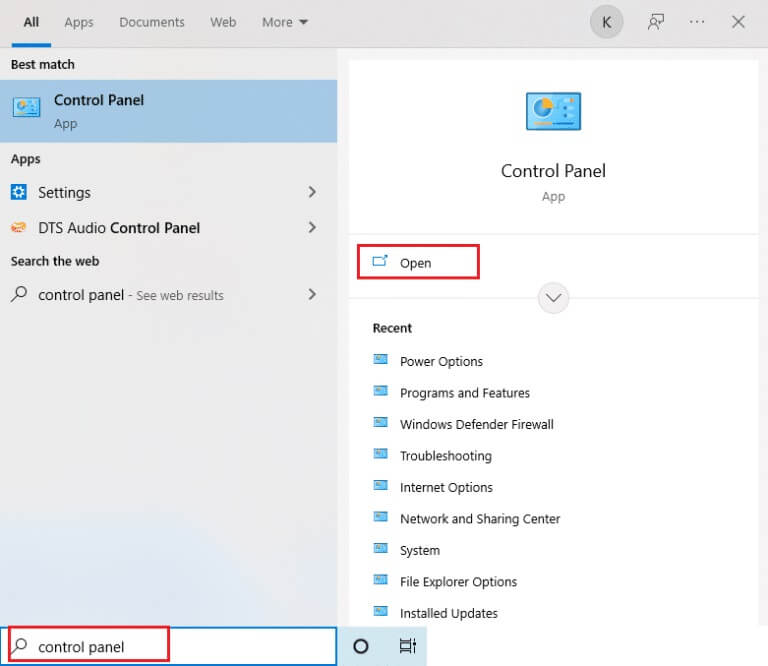
2. Set Display as large icons.Then locate Power Options button and select it.
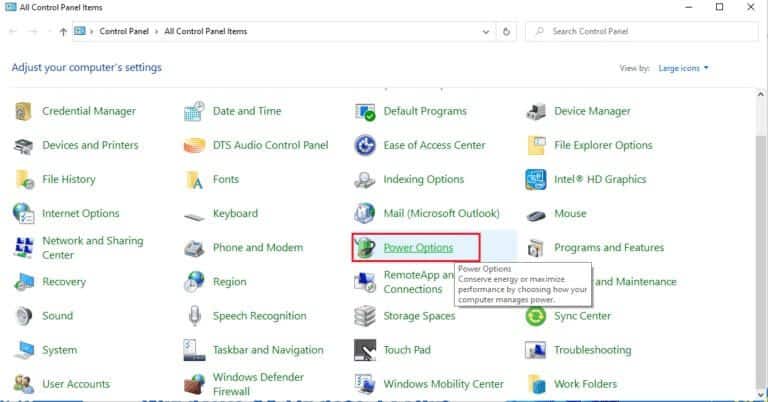
3. Next, change Energy plan To High performance mode As shown.
Note: If you don't have the option, click Create a power plan in the left pane and select the High performance option.
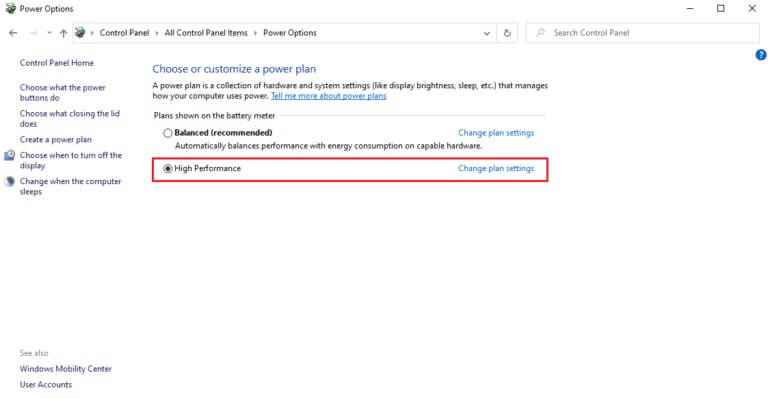
Note: If you can't find this option, click the battery icon in the system tray. Move the slider to "Best Performance."
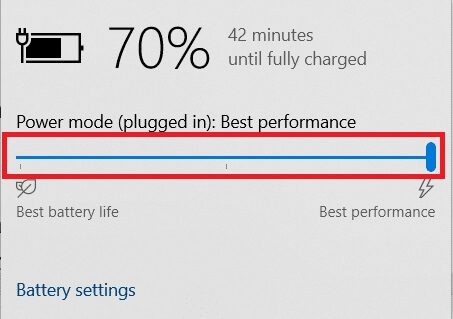
Always keep your laptop's power plan set to high performance or better to prevent thermal throttling issues in the future. This method can fix thermal throttling and is considered a preventative measure.
Method 2: Edit power plan settings
Another way to control thermal throttling is to adjust and change the power plans. Here, you need to keep the minimum and maximum processors at 100. If it's below 100, it causes the laptop to throttle under high usage. To keep these conditions at 100, follow the steps below.
1. Write Control Panel in Windows search bar and select open As shown.

2. Set Display as large icons. then select Power Options button location and select it.
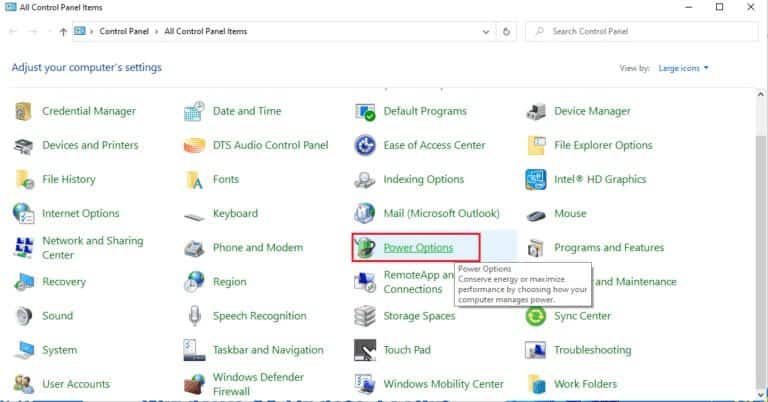
3. Here, select Change plan settings As shown.
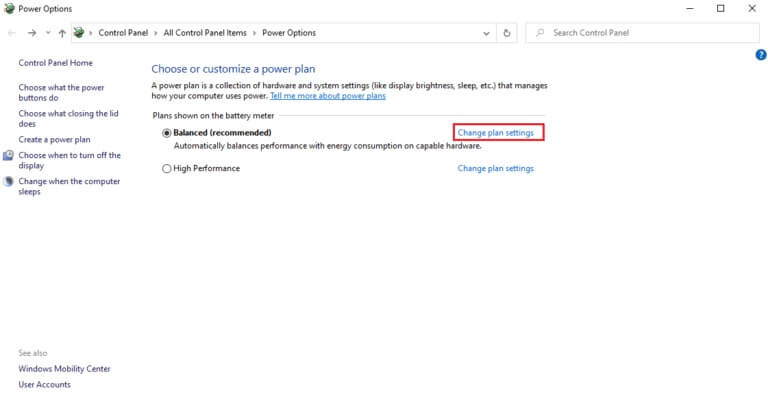
4. Then click Change advanced power settings In a page Edit plan settings As shown.
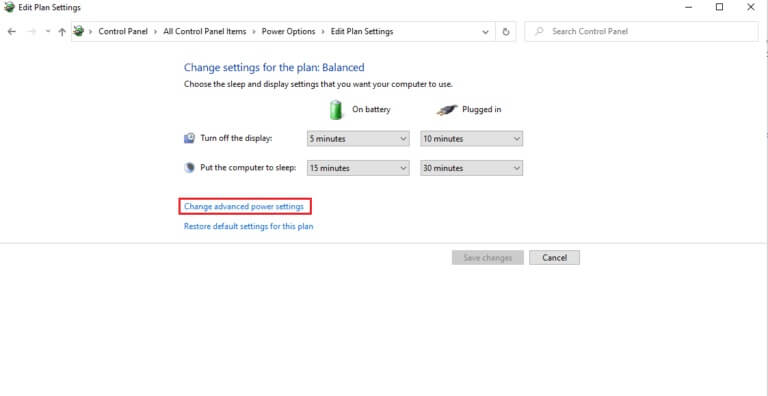
5. In a window Power Options , select an option Processor power management Expand it as shown.
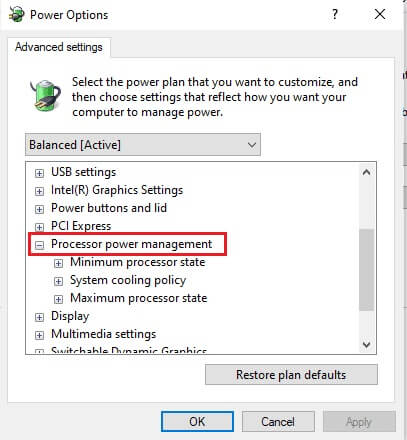
6. Select Maximum option For the processor rate and expand it as shown. Change Battery and connection options to 100%.
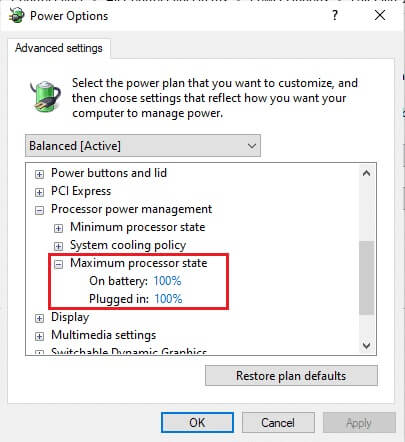
7. Now, select the option Minimum processor condition and set Battery and connection options to 100% As shown.
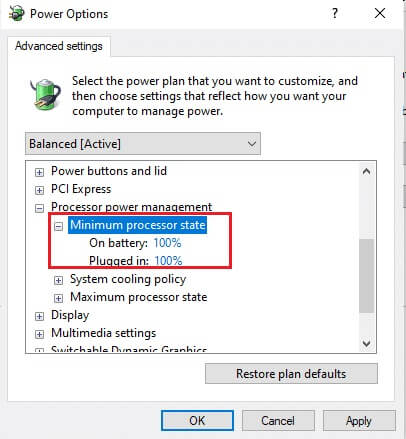
8. Finally, select "Application" Then click "OK" to save the changes.
9. Restart your computer Once the changes to the settings take effect.
Method 3: Modify the Registry Editor
Disabling thermal throttling via Registry Editor can be unsafe, and you could lose all data on your computer. Therefore, make sure to back up your entire laptop. This method will also prevent thermal throttling on your laptop. To disable it, follow the steps below.
1. Press Windows + R keys Together and open Run . dialog.
2. Write regedit In the dialog box as shown and click on Enter key.
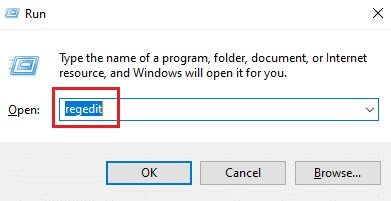
3. Click "Yeah" In the User Account Control prompt.
4. In a window Registry Editor , go to the path:
Computer \ HKEY_LOCAL_MACHINE \ SYSTEM \ CurrentControlSet \ Control
5. Select Energy folder location In the left pane, right click on it.
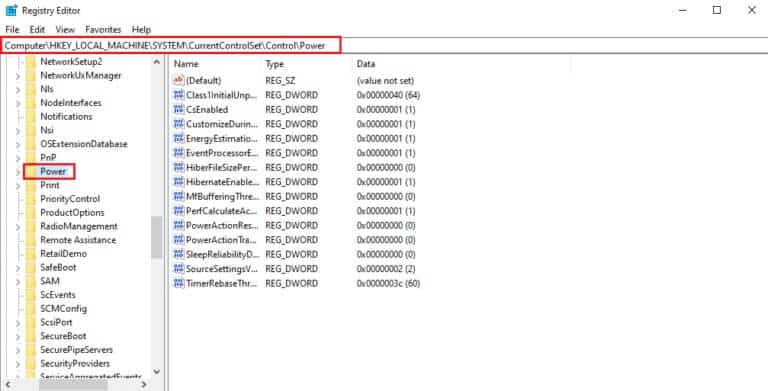
6. Select New Then click Option is key In the submenu as shown.
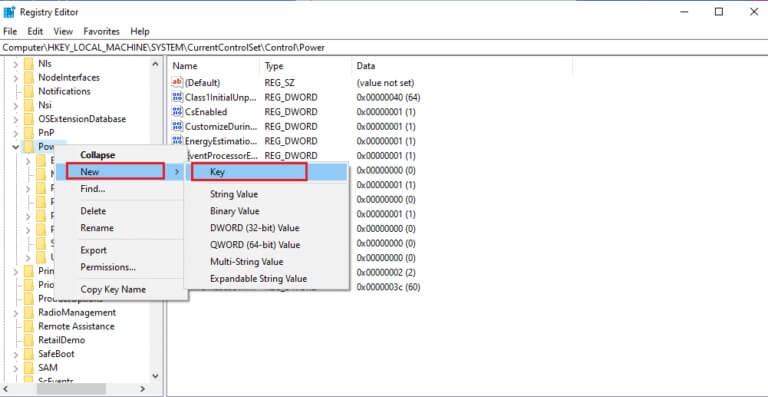
7. Name it. New main volume Basim PowerThrottling As shown.
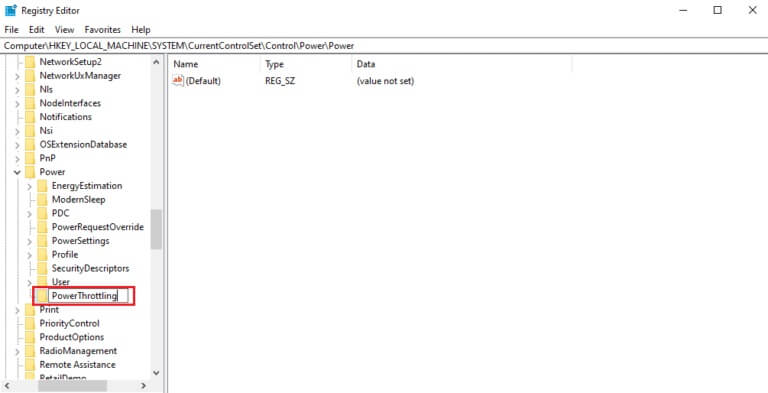
8. Right click on Empty area In the right pane. Select New Value then DWORD (32-bit).
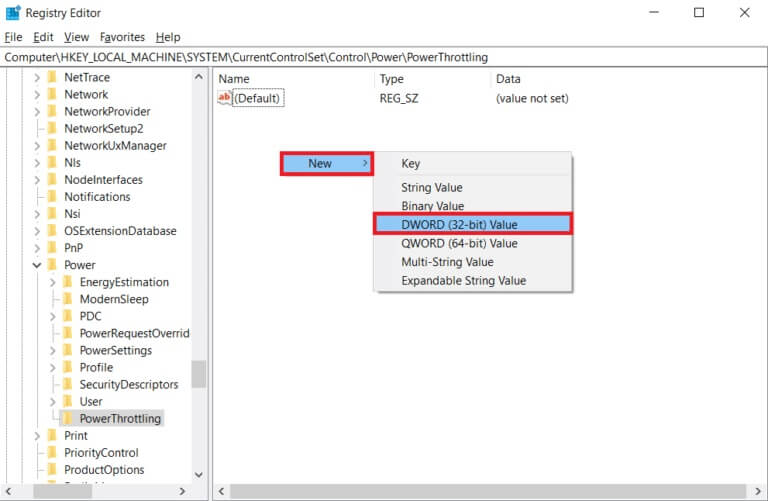
9. Name the newly created key. PowerThrottlingOff And press Enter.
10. Double-click on PowerThrottlingoff Series.
11. Set the value data to 1 of 0 And click "OK" To finalize the changes.
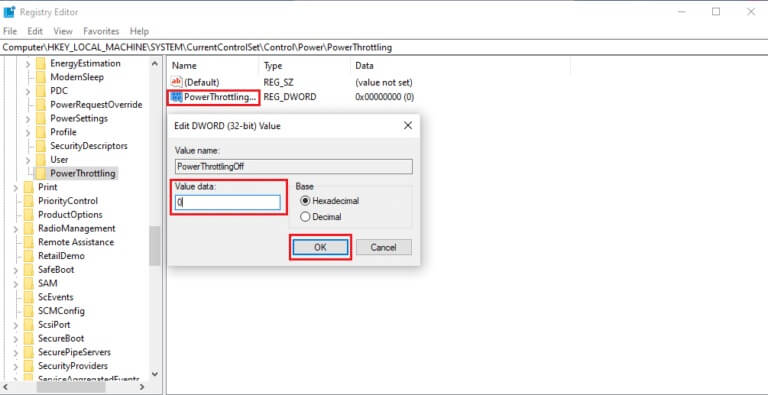
Note: If you want to enable it later, follow steps 1 through 4 in this method. Locate the PowerThrottling key in the Power folder and right-click it. Then select the Delete option to enable power throttling.
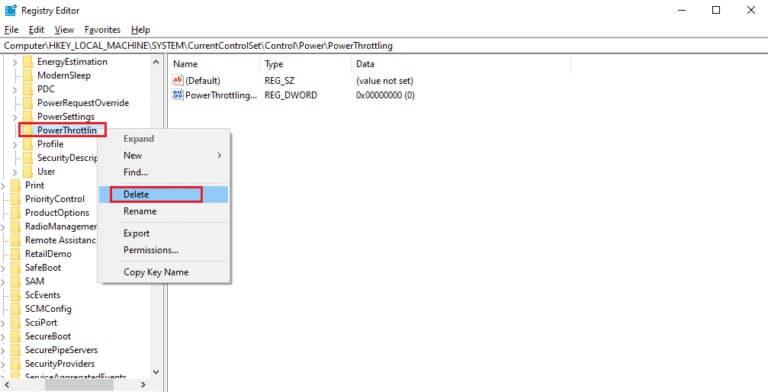
Method 4: Using thermal paste
Applying thermal paste can be a fix for stuffy laptops. All computers have a small thermal system that connects to the CPU. Due to their compact nature, there is no air between them. However, some air can enter between those gaps.
- You're well aware that air is a poor conductor of heat. Therefore, when the CPU temperature rises, the thermal conductivity decreases due to the air present, preventing the excess heat from escaping from the CPU.
- It also prevents the CPU cooling process and thus leads to thermal throttling.
- Applying thermal paste to the gap blocks air and allows the thermal system to cool with better thermal conductivity.
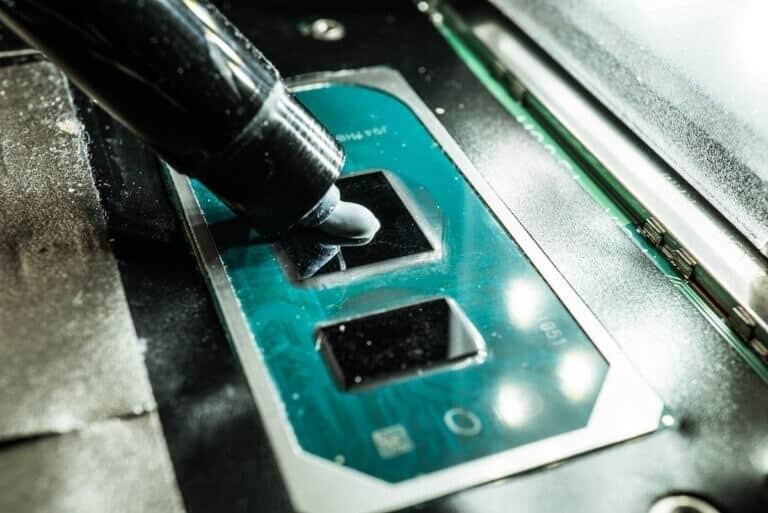
How to perform a thermal throttling test
If you suspect your computer is throttling, be sure to run a laptop thermal throttling test regularly. This test will monitor your laptop's processor, potentially protecting against damage to hardware components.
Option 1: Through the Resource Monitor Tool
1. Press Windows + R keys Together and open Run . dialog.
2. Write perfmon.exe /res And press Enter key.
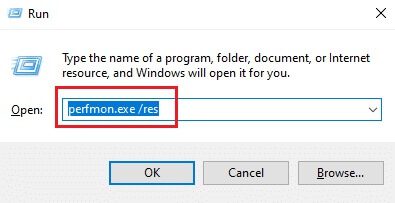
3. You can find Resource Monitor tool On your screen as shown.
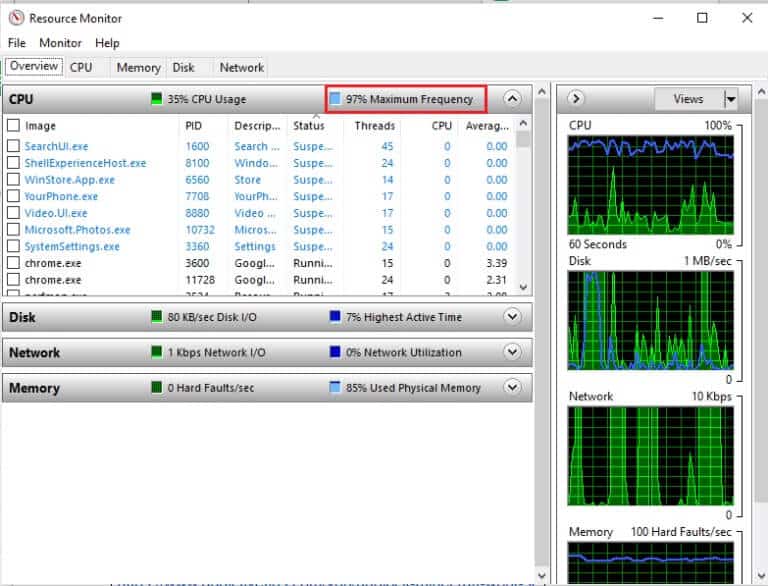
4. Use your laptop in the same manner as before. The maximum frequency value shown here indicates the current power consumption of the CPU. If the value does not exceed a certain point, it means your laptop is throttled.
Option 2: Through Task Manager
You can also run a thermal throttling test on your laptop using Task Manager. Follow the steps below.
1. Press Ctrl + Shift + Esc keys At the same time to open Task Manager.
2. Go to Details tab.
3. Right-click any of the column headers.
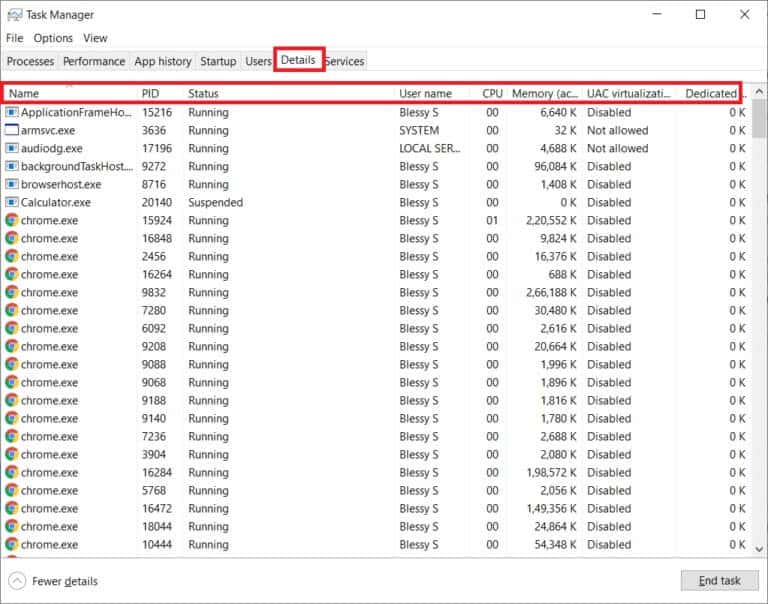
4. Choose an option Specify columns.
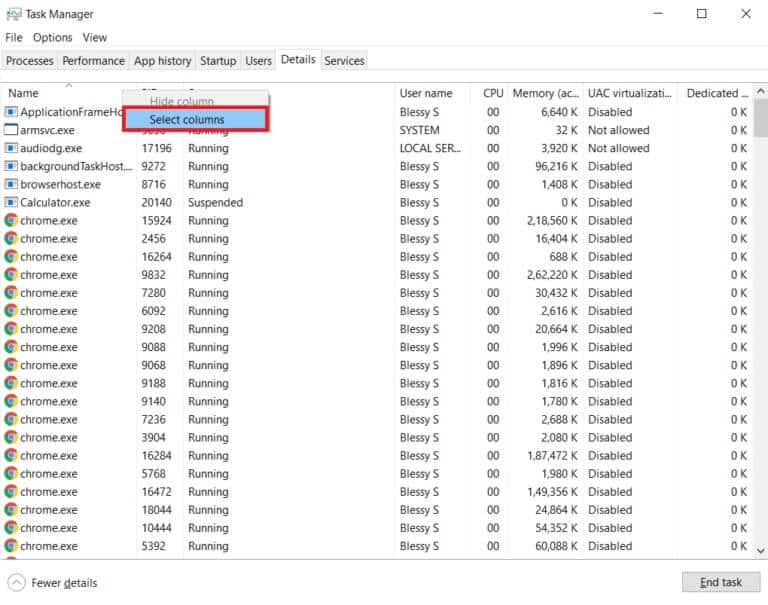
5. Scroll down and select Power throttling. Click OK.
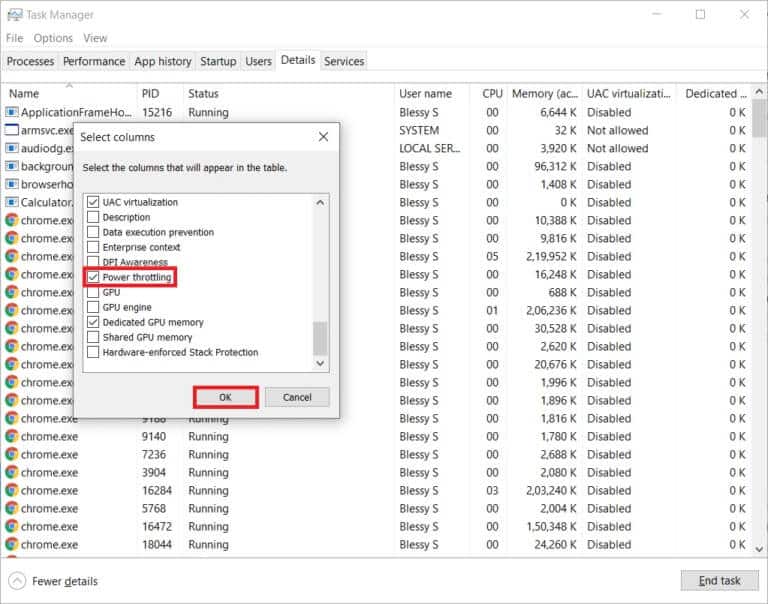
If disabled All operations , your system will be at its best performance.
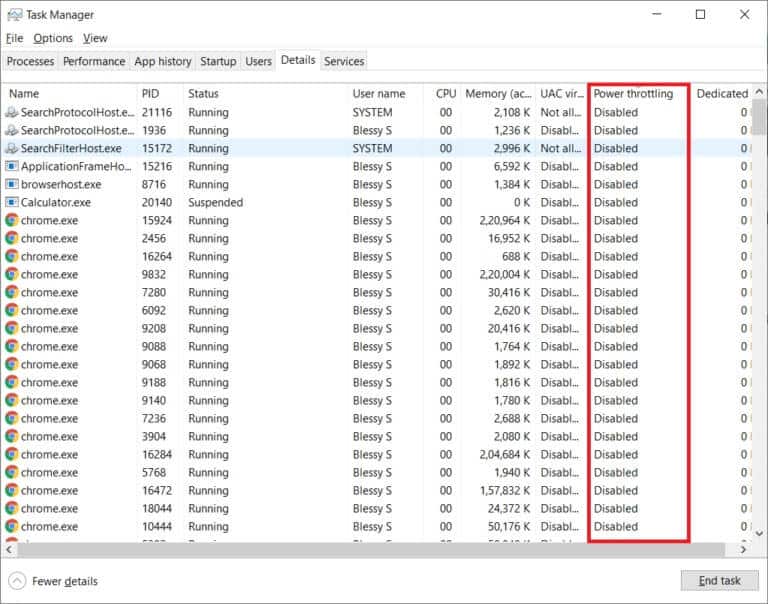
Option 3: Through a third-party tool HWiNFO
To perform this laptop thermal throttling test using a third-party tool, install the HWiNFO application on your laptop. To do this, follow the steps below.
1. Download Application HWiNFO on your system.
2. Click "to download" to install HWiNFO Beta [v7.16] Release.
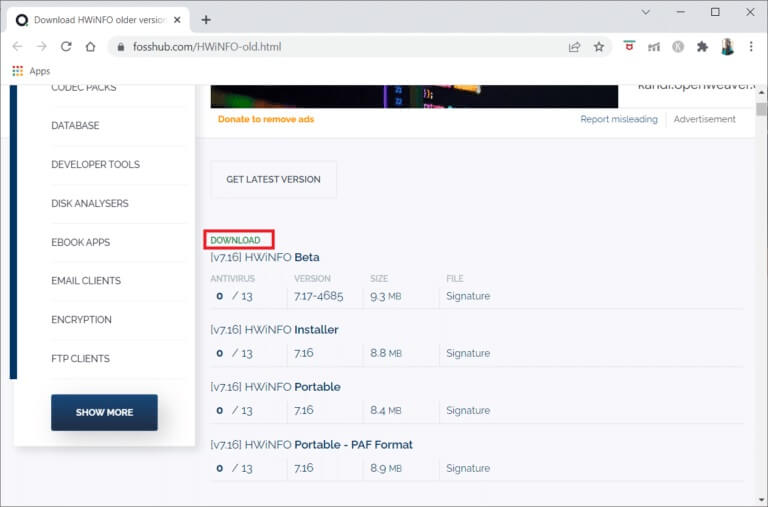
3. Click Installer file which has been downloaded.
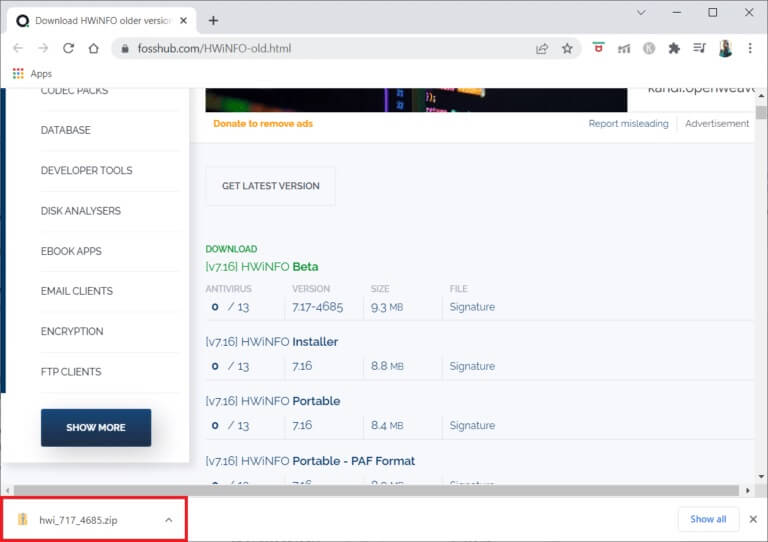
4. Double-click on Setup file. Click extract all in the popup window.
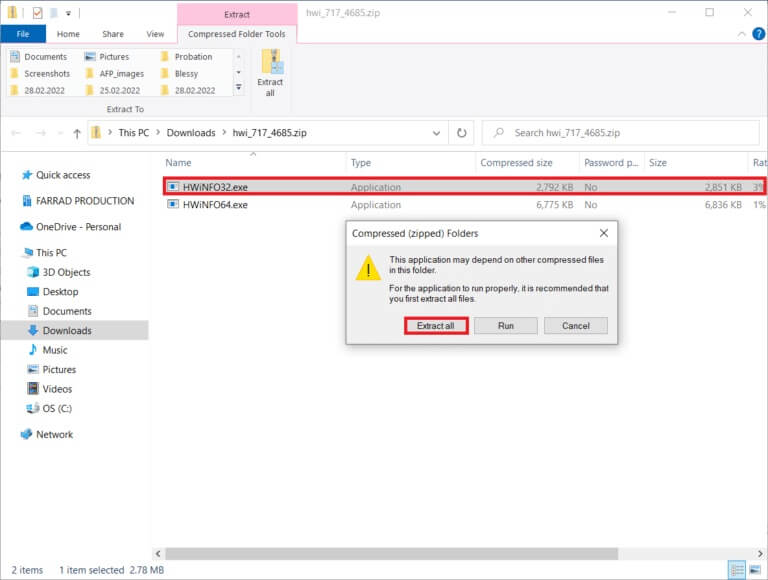
5. Select the location and click Extraction
6. Now, double-click on The application to turn it on.
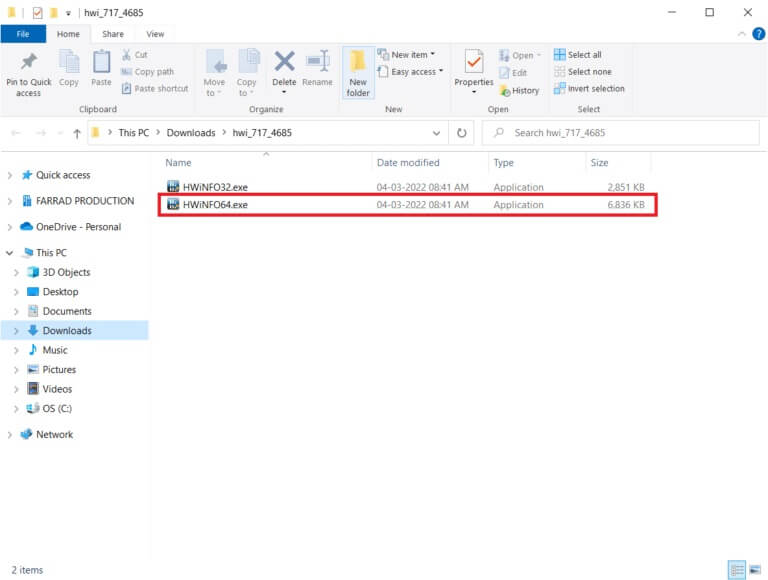
7. Click "Yeah" In the User Account Control prompt.
8. Select an option Sensors Just click the button "Start" As shown to start the installation process.
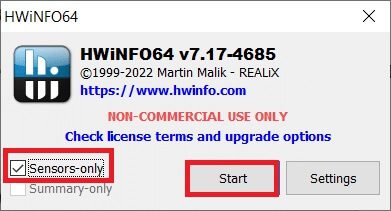
9. Scroll down and check the value. DTS section temperature In the processor.
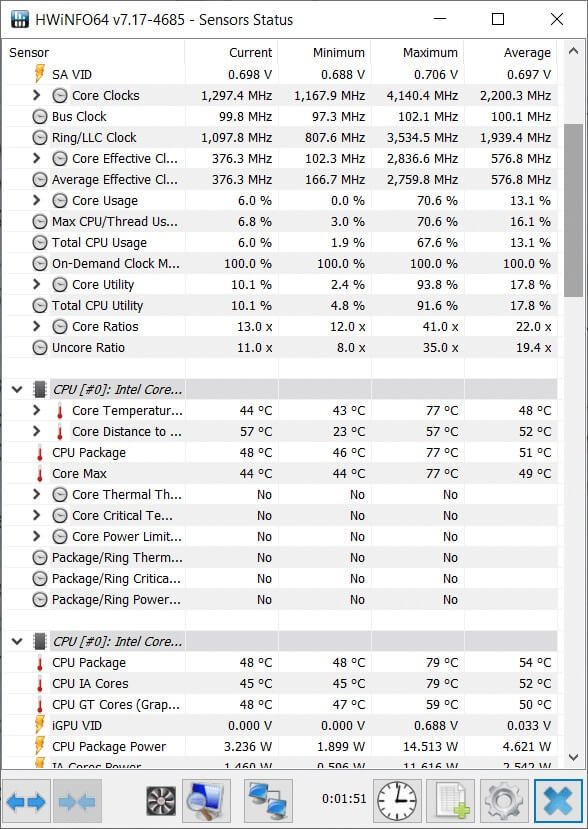
Here, note down the temperature values. If the values are too high and the laptop's processor is running too hot, it's throttled.
We hope this guide was helpful and that you were able to learn how to fix laptop thermal throttling. If you have any questions or suggestions, please leave them in the comments section. Let us know what you'd like to learn next.





